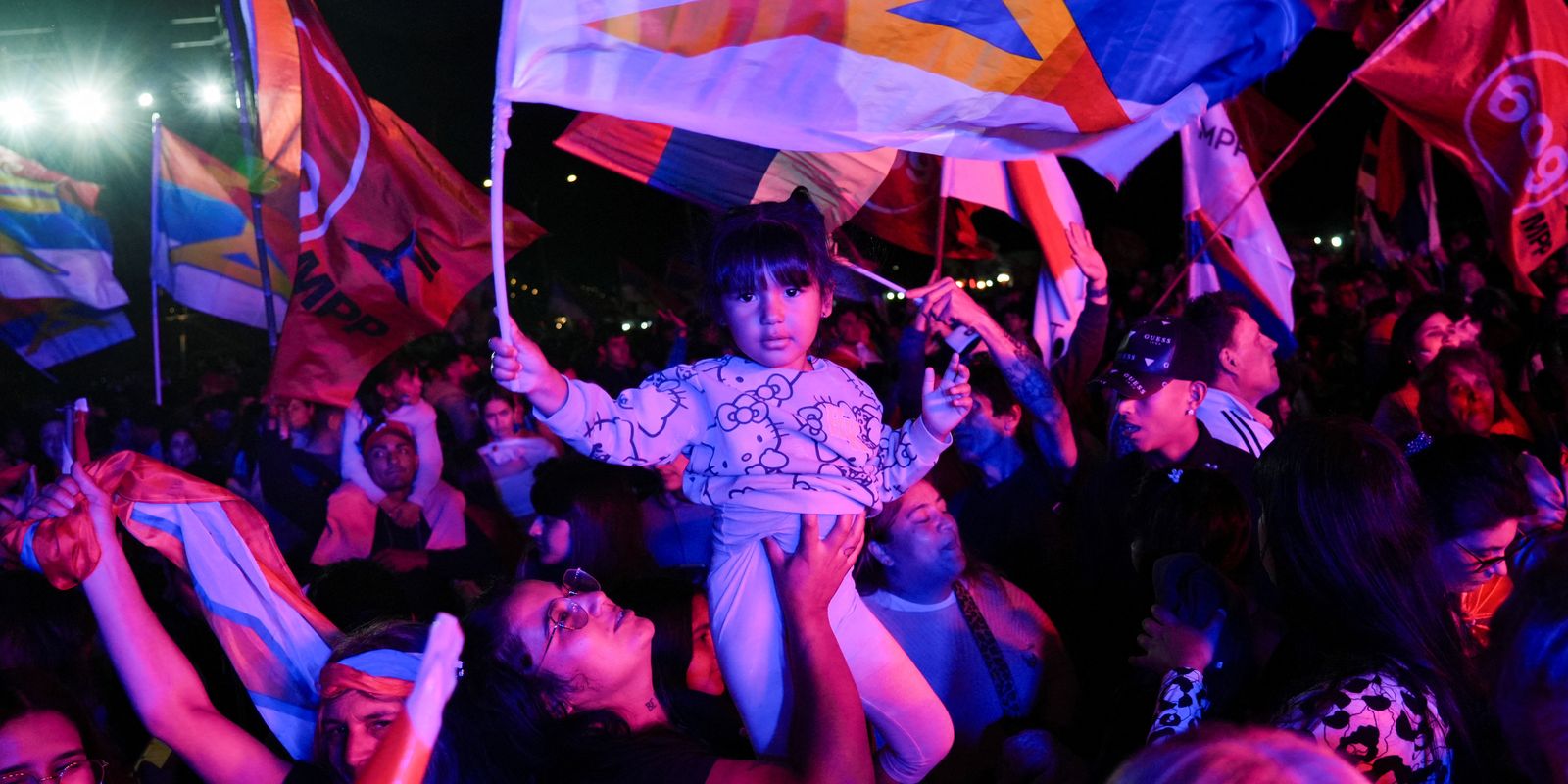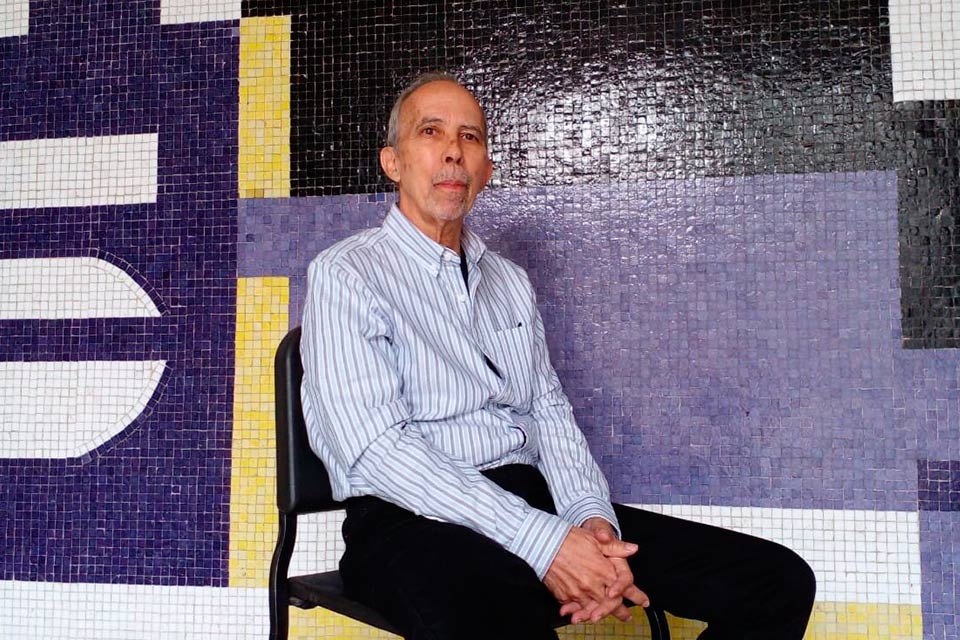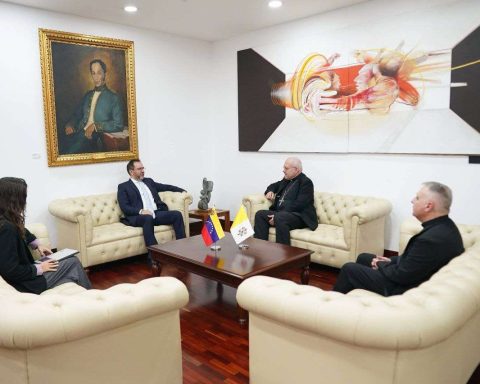The coalition of center-left parties in Uruguay that form the Frente Amplio – which governed the country from 2005 to 2019 – had more votes in the election since Sunday (27) than in the 2019 election, when they were defeated by the current centrist president -right Luis Lacalle Pou.
However, the scenario remains undefined for the second round, which will be held on November 24th. This is because the sum of votes obtained by the right-wing and center-right parties exceeds that of those won by the candidate in front of former president José Pepe Mujica.
The Broad Front candidate, Yamandú Orsi, had 43.94% of the votes against 26.77% for Álvaro Delgado, from the National Party, and supported by the current government. In third place was the Colorado Party candidate, Andrés Ojeda, with 16.03% of the votes. The remaining eight presidential candidates totaled 8.3% of the votes.
In 2019, the center-left front had 39.01% of the votes in the first round. In other words, there was a growth of almost 5 percentage points this year. In Parliament, the Broad Front achieved a simple majority in the Senate, but it still depends on voting in the second round to consolidate this majority. In the Chamber of Deputies, neither of the two main blocs achieved a majority.
Journalist, doctor in political science and professor of international relations Bruno Lima Rocha Beaklini estimates that there is a high chance that, in the second round, right-wing and center-right votes will surpass those of the Frente Amplio.
“If it were 47% or 48%, the Frente Amplio would win easily, but it’s not easy, no. The sum of votes for right-wing parties gives the right a victory. There is a fourth party which is the one that received the majority of the votes of the discontented. If this guy provides critical support to the Broad Front, it could be a technical draw”, commented Beaklini.
The expert cites candidate Gustavo Salle, from the Sovereign Identity party, who received 2.69% of the votes and took fourth place, ahead of the far-right candidate, Guido Manini Ríos. Guido had 2.45% of the votes for the Cabildo Abierto party, which went from three senators and 11 deputies in 2019 to just two deputies and no senators.
Candidate Gustavo Salle is a kind of outsider of Uruguayan politics, and his party won, for the first time, two seats in the Chamber of Deputies. Gustavo Salle has been preaching a null vote in the second round.
Political scientist Leandro Gabiati also assesses that the second round is not comfortable for the Frente Amplio. “The tendency is for the other parties to support the National Party candidate in the second round. This means that the election remains very undefined”, said the expert.
For Bruno Beaklini, the Broad Front needs to improve voting not only in the capital Montevideo, where it has always won elections. “It will be necessary to expand voting in the capital and try to improve in some department in the interior, improve a lot. Otherwise, it won’t work”, he added.
National Party
The National Party – owned by current president Luiz Lacalle Pou – fell in the number of votes compared to the last election, when it had 28.8% in the first round, against the current 26.7% of its sponsor Álvaro Delgado. Even so, Delgado’s result was slightly higher than predicted by electoral polls.
Political scientist Leandro Gabiati assessed that this drop is normal for a party in power. “The National Party won the previous election precisely because it was the change. After five years of Lacalle Pou’s government, there is wear and tear among those who govern and this wear and tear is reflected in this lower performance in this election”, he analyzed.
Brazil
For expert Gabiati, the victory of one or another candidate on November 24th should not bring important changes to the relationship between Brazil and Uruguay.
“Lula and Lacalle Pou have spoken in an open and frank manner, despite having opposing ideological tendencies. As Lacalle Pou identifies with a democratic right of dialogue, this has not harmed diplomatic and political relations between Brazil and Uruguay”, he explained.
International relations professor Bruno Beaklini, in turn, assesses that the center-left coalition brings more benefits to Latin American integration and Mercosur.
“The Frente Amplio is enthusiastic about Mercosur, as is the Brazilian government. The right-wing coalition is not. Depending on the right-wing coalition, they sign the free trade agreement with China, for example”, he assessed.
Plebiscites
In addition to voting for president, deputies and senators, Uruguayans were able to express their views in relation to two plebiscites proposed by society; one that provided for social security reform and another that authorized nighttime police raids. In both cases, the consultations did not obtain more than 50% of the votes and were not approved.
In one of the plebiscites, led by the country’s trade unions, a pension reform was proposed to limit the retirement age to 60, set the minimum pension amount to the minimum wage, in addition to putting an end to private pension companies. In 2023, the Uruguayan government raised the minimum age to retire from 60 to 65 years old.
For professor Bruno Beaklini, the lack of resources to promote the campaign for social security reform and the lack of support from the Broad Front for the plebiscite explain the defeat of the unions’ proposal.
“This campaign failed. The trade union federation funded the campaign out of its own pocket along with the left, which is not even electoral. Within the Broad Front, the Communist Party financed the campaign and the other sectors withdrew. The debate did not penetrate Uruguayan society as it should have”, he highlighted.
In the other consultation, led by right-wing parties, the aim was to change the Constitution to allow nighttime police raids. The change also did not have majority support and was rejected. Just like in Brazil, the police can only enter a citizen’s home with a court order and during the day.
















